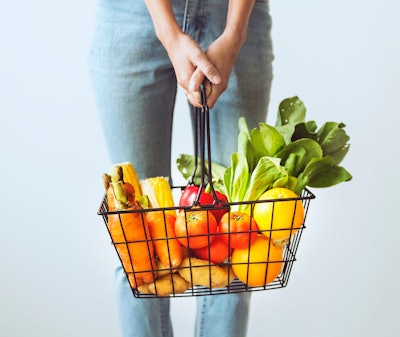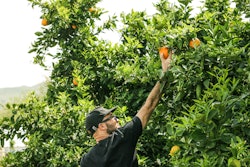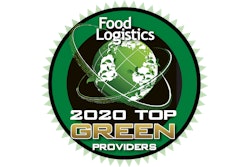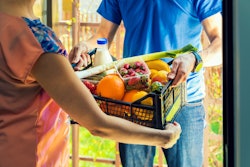
As agriculture strives for sustainability, growers need to tackle the duel problem of food waste and the inefficiency of transporting fresh produce thousands of miles across the country.
Food waste is estimated at between 30-40% of the food supply, and 98% of the nation’s lettuce is trucked from California and Arizona, contributing to the problem of spoiled produce. These shipments generate over 10,000 lbs. of CO2 per truckload, and hundreds of hours are being spent planning the logistics of food distribution. Furthermore, California continuously faces major droughts, and soil erosion is a problem plaguing farmers nationwide. As a result, traditional farming is increasingly unsustainable.
With mounting concerns about climate change and growing population demands, Paul Sellew, the founder and CEO of Little Leaf Farms, has a model growing method that brings year-round sustainable farming to New England and the East Coast with a smaller carbon footprint.
With its expansion to 10 acres in Devens, Mass. and new greenhouses planned in Pennsylvania and North Carolina, Sellew and the company’s head grower and manager, Pieter Slaman, a Dutch master of growing produce, have designed the most technologically advanced greenhouses in the world to grow lettuce with nearly 100 percent natural sunlight and recycled rain water without pesticides, herbicides, or insecticides.
They are growing crisp, baby green lettuce, incorporating principles of sustainability and state-of-the-art climate control technology.
Key features include:
- Hydroponic production – growing without soil – naturally protects increasingly stressed topsoil that is vulnerable to soil erosion, an increasing problem in agriculture today. This precise, soil-less method utilizes up to 90% less water than field-grown greens to grow crunchy, flavorful lettuce.
- Little Leaf Farms uses the best glass, which diffuses light throughout the greenhouse resulting in greatest possible distribution of natural sunlight. The greenhouse is designed with the most efficient LED lights that target the specific wavelength ranges to maximize photosynthesis in the plants.
- Little Leaf Farms’ Nutrient Film Technique (NFT) mobile gutter system is the most advanced in the world, delivering an approximately 20x yield increase per acre compared to traditional West Coast field agriculture and higher yields compared to other hydroponic systems. The main advantage of this technique over other hydroponic growing systems is the plant roots are exposed to adequate supplies or water, oxygen and nutrients all at the same time. This better and more efficient use of inputs also leads to lower production costs.
- At Little Leaf Farms, lettuce is grown with 100% captured rainwater and almost 95% natural sunlight through special high-light transmission glass windows. The average annual rainfall is 46 inches in New England, and Little Leaf Farms uses about 23 inches a year.
- To heat the greenhouse, Little Leaf Farms burns clean natural gas and captures the CO2 and releases it back into the greenhouse – making the process net neutral. Solar panels also generate about 20-30% of electricity.
- Hydroponic growing is also safer because the lettuce does not come into contact with contaminates that field-grown lettuce is subjected to from livestock. The lettuce is not handled by human hands. It is also grown free of chlorine, other chemical washing agents and harmful chemical residues.














